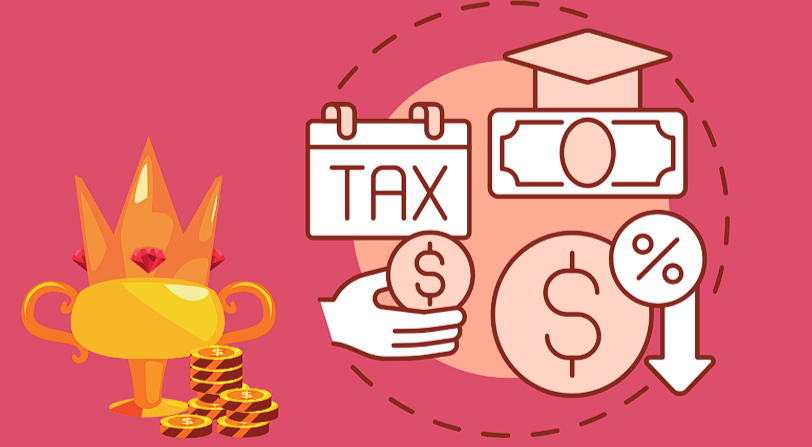Betting tax regulations are a critical aspect of the sports betting industry, impacting both bettors and betting operators. Understanding these regulations is essential for ensuring compliance, maximizing returns, and avoiding potential legal issues. This article explores the various betting tax regulations, their implications, and how bettors can navigate these complexities to make informed decisions.
Types of Betting Taxes
Turnover Tax
Turnover tax is a type of betting tax that is applied to the total amount of bets placed, regardless of whether the bets are winning or losing. This tax is typically levied on the betting operator rather than the individual bettor.
- Calculation: Turnover tax is calculated as a percentage of the total amount wagered.
- Impact on Operators: Betting operators must factor this tax into their operating costs, which can affect the odds and payouts offered to bettors.
- Example: If a betting operator has a turnover of $1 million and the turnover tax rate is 5%, the operator would pay $50,000 in taxes.
Gross Gaming Revenue (GGR) Tax
Gross Gaming Revenue (GGR) tax is applied to the total revenue generated by the betting operator after paying out winnings to bettors. This tax is more directly tied to the operator’s profits.
- Calculation: GGR tax is calculated as a percentage of the total revenue minus the payouts to bettors.
- Impact on Operators: This tax affects the operator’s net revenue and can influence the pricing of odds and promotions.
- Example: If a betting operator generates $1 million in revenue and pays out $800,000 in winnings, the GGR is $200,000. If the GGR tax rate is 20%, the operator would pay $40,000 in taxes.
Withholding Tax
Withholding tax is a type of betting tax that is deducted directly from the bettor’s winnings. This tax is typically levied by the government and can vary significantly between jurisdictions.
- Calculation: Withholding tax is calculated as a percentage of the bettor’s winnings.
- Impact on Bettors: This tax directly affects the bettor’s net returns, reducing the amount of winnings they receive.
- Example: If a bettor wins $1,000 and the withholding tax rate is 10%, the bettor would receive $900 after tax.

Regional Variations in Betting Taxes
United States
In the United States, betting tax regulations vary by state, with some states imposing turnover taxes, GGR taxes, or withholding taxes. Federal regulations also play a role in determining the overall tax burden.
- Federal Tax: The federal government imposes a 0.25% excise tax on the handle (total amount wagered) and a 2% tax on the net proceeds from sports betting.
- State Taxes: Individual states may impose additional taxes, such as Pennsylvania’s 36% tax on GGR and New Jersey’s 8.5% tax on GGR.
- Impact on Bettors: The combination of federal and state taxes can significantly impact the odds and payouts offered by betting operators.
United Kingdom
In the United Kingdom, betting tax regulations are more straightforward, with a focus on GGR tax and point of consumption tax.
- GGR Tax: The UK imposes a 15% GGR tax on remote gambling operators.
- Point of Consumption Tax: This tax ensures that operators are taxed based on where the bettor is located, rather than where the operator is based.
- Impact on Operators: The GGR tax affects the operator’s net revenue and can influence the pricing of odds and promotions.
Europe
In Europe, betting tax regulations vary widely between countries, with some imposing turnover taxes, GGR taxes, or withholding taxes.
- Germany: Germany imposes a 5% turnover tax on sports betting.
- France: France imposes a 8.5% GGR tax on sports betting.
- Italy: Italy imposes a 20% GGR tax on sports betting.
- Impact on Bettors: The varying tax rates and structures across Europe can affect the odds and payouts offered by betting operators in different countries.
Strategies for Navigating Betting Taxes
Choosing the Right Jurisdiction
Choosing the right jurisdiction for betting can help bettors minimize their tax burden and maximize their returns.
- Research Tax Rates: Compare the tax rates and structures in different jurisdictions to identify the most favorable betting environment.
- Consider Legal Implications: Ensure that you are compliant with the betting regulations in the jurisdiction where you are placing your bets.
- Use Offshore Betting Sites: Some bettors choose to use offshore betting sites that operate in lower-tax jurisdictions, although this comes with its own set of risks and considerations.
Understanding Tax Deductions
Understanding tax deductions and how they apply to betting winnings can help bettors manage their tax obligations more effectively.
- Itemized Deductions: In some jurisdictions, bettors can itemize their betting losses to offset their winnings, reducing their overall tax liability.
- Standard Deductions: Some jurisdictions offer standard deductions that can be applied to betting winnings, simplifying the tax calculation process.
- Professional Gambler Status: In certain cases, bettors who qualify as professional gamblers may be eligible for additional tax deductions and benefits.
Utilizing Tax-Efficient Betting Strategies
Utilizing tax-efficient betting strategies can help bettors minimize their tax burden and maximize their returns.
- Betting Pools: Participating in betting pools can help spread the tax burden among multiple bettors, reducing the individual tax liability.
- Tax-Free Jurisdictions: Placing bets in tax-free jurisdictions can help bettors avoid withholding taxes and maximize their net returns.
- Tax Planning: Consulting with a tax professional can help bettors develop a comprehensive tax planning strategy that minimizes their tax obligations and maximizes their returns.
Conclusion
Understanding betting tax regulations is crucial for bettors and betting operators alike. By recognizing the different types of betting taxes, their regional variations, and the strategies for navigating these complexities, bettors can make more informed decisions and maximize their returns. Whether you are a seasoned bettor or new to the world of sports betting, staying informed about betting tax regulations can help you achieve greater success and enhance your overall betting experience. By choosing the right jurisdiction, understanding tax deductions, and utilizing tax-efficient betting strategies, you can navigate the complex world of betting taxes more effectively and maximize your potential returns.
